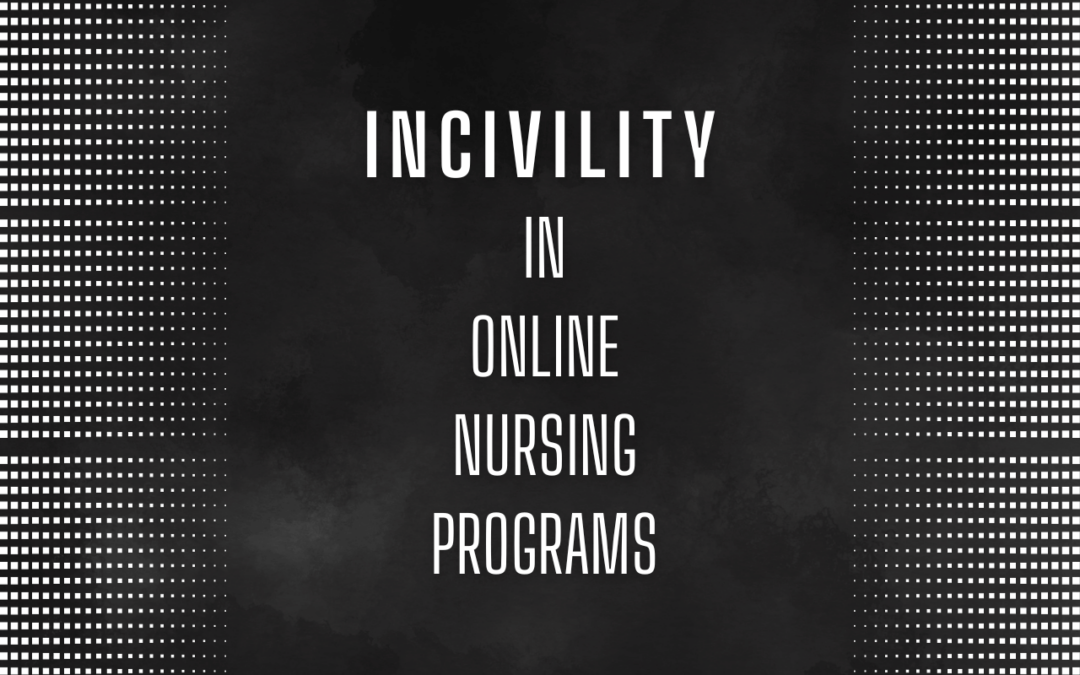Incivility in nursing education has become an increasingly bothersome problem; however, it has especially become a nuisance in online education. Suplee, Lachman, Siebert, and Anselmi (2008) indicated that a faculty witnesses daily encounters in classes and clinical settings. Incivility is defined as behavior that is unprofessional, rude, and disrespectful. It can result in burnout and psychological and physiological distress for the parties on the receiving end, especially if left unaddressed (Butler & Strouse, 2022).
Another term that has especially been seen in the online realm is bullying, which can occur student-to-faculty and faculty-to-student. Unfortunately, it can also occur in faculty-to-faculty (Butler & Strouse, 2022). There has been an increase seen in student-to-faculty students’ displeasure with their achieved grades.
We must evaluate the reasons that the behavior is happening.
Stress from many walks of life can be the culprit, including working too many hours, mismanagement of work-life balance, stressful work assignments, financial strains, relationship strains, biases, and so on. Butler and Strouse (2022) also indicated that burnout and demanding workloads contribute to the greatest stressors. Personally, I have observed these behaviors displayed when providing constructive criticism. How can we, the faculty, help to ease the burden and create the traditional professional environment that many of us were able to participate in our educational journey?
As a part of a nursing faculty for ten years, I feel it is my calling. I enjoy helping deploy educated and competent novice nurses and advanced practice nurses into the workforce. However, the stress and incivility sometimes make one feel burned out. Many of us ponder going back into the clinical setting, feeling unappreciated and undeserved.
Caputi (2015) reported that the faculty can assist students in engaging in constructive evaluation of themselves and others. One factor is professional maturity, which can allow the students to analyze their own performance. As a faculty, providing feedback that is useful in the workplace and not hurtful can be helpful for growth and development. Self-reflection and guided introspection can be useful (Caputi, 2015). Discussing values, morals, attitudes, and the AACN essentials, pertaining to professionalism and leadership can be useful in developing students with incivility and assisting students in understanding (Caputi, 2015). However, the most important element is support from the administration and the appropriate follow-up and disciplinary actions.
References
Butler, April M., and Susan M. Strouse. “An Integrative Review of Incivility in Nursing Education.” Journal of Nursing Education 61, no. 4 (2022): 173-178.
Caputi, Linda. “Certified nurse educator review book: The official NLN guide to the CNE exam.” (2019).
Suplee, Patricia D, Vicki D. Lachman, Barbara Siebert and Katherine Kaby Anselmi. “Managing Nursing Student Incivility in the Classroom, Clinical Setting, and On-Line.” Journal of Nursing Law 12 (2008): 68-77.
- Incivility in Online Nursing Programs - October 10, 2023



